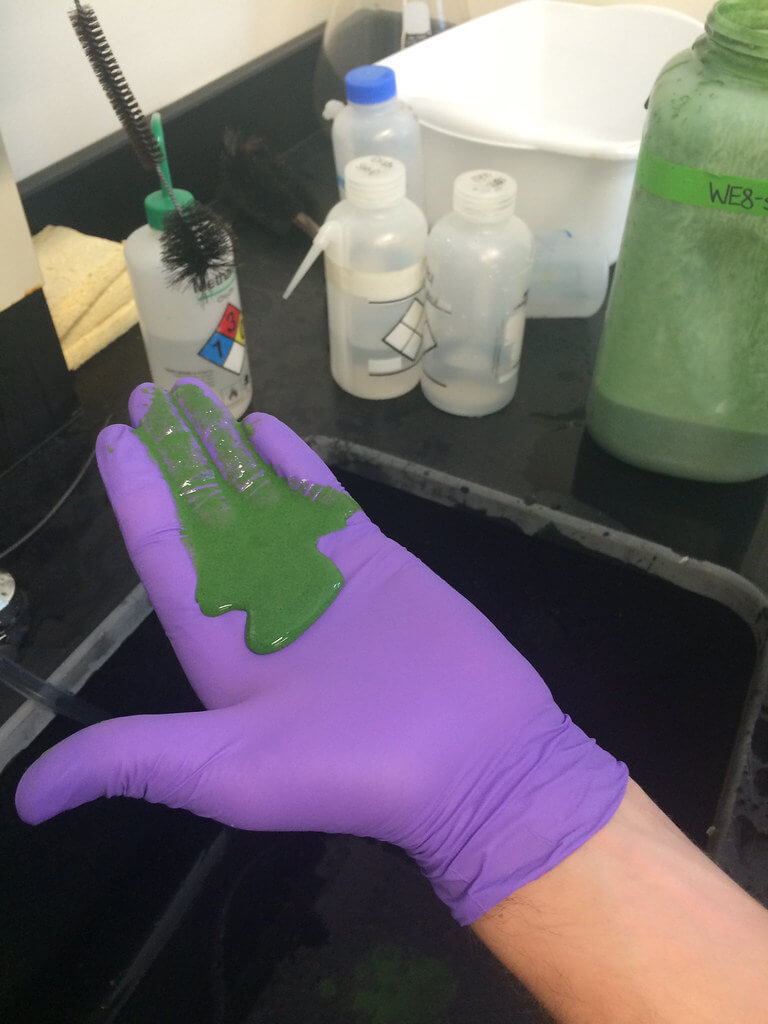
The vast majority of algae growing in lakes and ponds represents a normal part of a healthy ecosystem and are harmless to animals. This summer, there have been reports of dogs and other animals sickened after exposure to rapid growth of thick, sometimes odiferous, blue-green algae (cyanobacteria) in lakes and ponds in the U.S. Dr. Steve Hooser, Purdue Veterinary Medicine professor of toxicology and head of the Animal Disease Diagnostic Laboratory’s Toxicology section, says some of these “blooms” of blue-green algae have produced deadly toxins that can affect the nervous system or liver of dogs exposed to algal toxins in the water or at the water’s edge. Livestock can also be poisoned from drinking water with the toxins in it.

National Oceanic and Atmospheric Administration (NOAA) Great Lakes Environmental Research Laboratory in Ann Arbor, Mich., August 10, 2015. (Photo courtesy of NOAA)
To the untrained eye, harmless filamentous green algae and potentially toxic blue green algae can look pretty similar. To make things even more uncertain, even when there is an actual bloom of blue-green algae (see picture above), sometimes the blue-green algae make toxins, and sometimes they don’t. There is no way to know just by looking at the blue-green algae in the water.
The Indiana Department of Environmental Management (IDEM), the Indiana Department of Natural Resources (DNR), the Indiana State Department of Health (ISDH), and the Board of Animal Health (BOAH) have excellent information about blue-green algae, also known as cyanobacteria, in Indiana lakes. Additionally, the Indiana DNR has a program that monitors blue-green algae in some public reservoirs and lakes.
In cases in which blue-green algae blooms are present, and there is potential danger to animals, testing can be performed on water samples at the Purdue University College of Veterinary Medicine’s Animal Disease Diagnostic Laboratory (ADDL) to look for blue-green algae and to detect the presence of blue-green algae toxins, anatoxin-a or microcystins.
For additional information about blue-green algae testing, visit the ADDL’s website at: www.addl.purdue.edu
